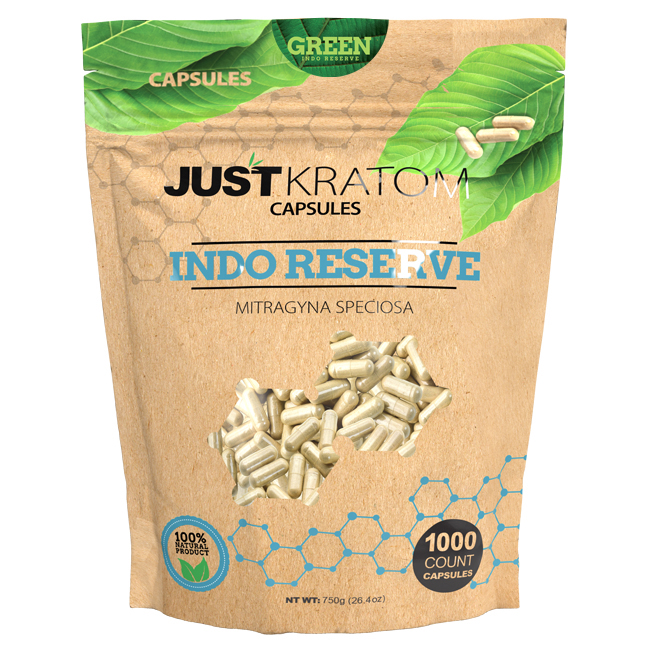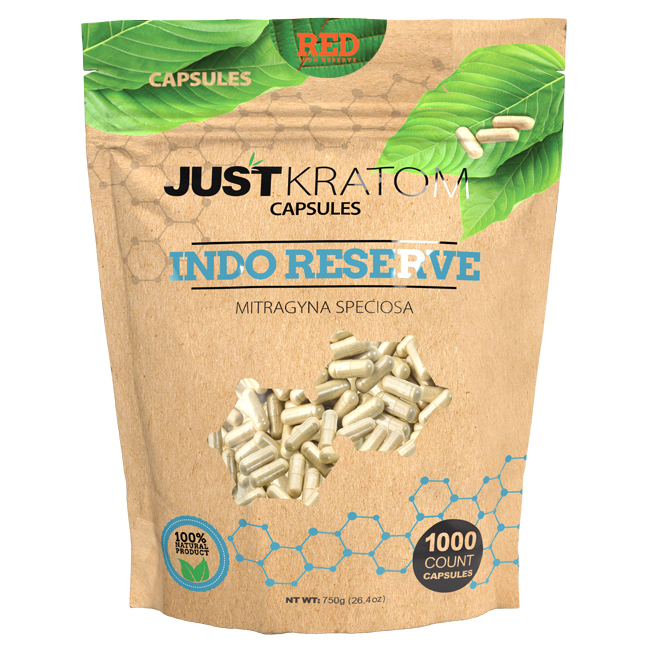Potential Benefits of Kratom for Insomnia
Insomnia, a common sleep disorder characterized by difficulty falling or staying asleep, can significantly impact an individual’s well-being and daily life. Individuals seeking natural alternatives to conventional sleep medications may explore the potential benefits of kratom, a tropical plant with purported sedative and analgesic properties.
Mechanism of Action
Kratom is believed to potentially help insomnia by interacting with opioid receptors in the brain. These receptors are involved in regulating pain, mood, and sleep. Kratom contains compounds called mitragynine and 7-hydroxymitragynine, which are thought to bind to these receptors, producing effects similar to those of opioids, including relaxation and sedation.
However, it’s important to note that research on kratom’s efficacy for insomnia is limited and inconclusive. Some studies suggest potential benefits, while others have shown mixed results. Furthermore, kratom can have adverse effects, such as nausea, dizziness, and constipation, and its long-term effects are not fully understood.
Anecdotal Evidence and User Reports
Anecdotal evidence suggests that kratom may help some individuals with insomnia fall asleep easier and stay asleep longer. Many users report experiencing a feeling of calmness and relaxation after consuming kratom, which can contribute to better sleep quality. Some people find that taking kratom in the evening helps them unwind and prepare for bed.
It is important to remember that anecdotal evidence does not constitute scientific proof. User reports are subjective and may be influenced by factors other than kratom itself. Individuals should consult with a healthcare professional before using kratom for insomnia or any other health condition.
Limited Scientific Studies
Kratom capsules are being explored as a potential treatment option for insomnia, but scientific research on their effectiveness is limited.
- Some studies suggest that kratom may promote sleep by interacting with opioid receptors in the brain, which are involved in regulating pain, mood, and sleep.
- However, other studies have shown mixed results, and more research is needed to determine the efficacy of kratom for insomnia.
It’s important to note that kratom can have side effects, such as nausea, dizziness, and constipation. Additionally, its long-term effects are not fully understood.
Individuals considering using kratom for insomnia should consult with a healthcare professional to discuss potential benefits and risks.
Risks and Side Effects of Using Kratom for Insomnia
While some individuals report using kratom capsules to alleviate insomnia symptoms, it’s crucial to understand the potential risks associated with this practice. Kratom, a tropical plant containing compounds that interact with opioid receptors in the brain, may offer sedative effects but lacks conclusive scientific evidence supporting its effectiveness for treating insomnia.
Tolerance and Dependence
Using kratom for insomnia can carry risks and side effects. Kratom’s effects stem from compounds like mitragynine and 7-hydroxymitragynine, which interact with opioid receptors in the brain. While this interaction might lead to relaxation and sedation, potentially aiding sleep, it also carries risks.
One significant concern is the development of tolerance and dependence. Regular kratom use can lead to the body requiring higher doses to achieve the desired effects. This can create a cycle of increasing consumption, ultimately leading to dependence.
Kratom’s side effects can also disrupt sleep. Nausea, dizziness, and constipation are common adverse reactions that can interfere with restful sleep. Long-term use of kratom may have further unknown consequences for health.
Interactions with Medications
Using kratom to treat insomnia comes with various risks and potential side effects. Kratom’s active compounds, mitragynine and 7-hydroxymitragynine, interact with opioid receptors in the brain, producing sedative effects. However, this interaction can also lead to tolerance and dependence. Regular use may require increasing doses to achieve the desired effect, potentially leading to a cycle of addiction.
Kratom can cause side effects that may disrupt sleep rather than improve it. Nausea, dizziness, and constipation are common adverse reactions. Long-term effects of kratom use remain largely unknown, raising concerns about potential health complications.
Moreover, kratom can interact with various medications. Combining kratom with opioids, antidepressants, or other central nervous system depressants can be particularly dangerous, potentially leading to severe side effects or overdose.
Potential Liver Damage
One significant concern is the risk of liver damage associated with kratom use. The compounds in kratom can put a strain on the liver, leading to potential inflammation and injury over time. There have been reports of liver failure in individuals who have used kratom, particularly those who consumed high doses or for prolonged periods.
It’s important to note that the risk of liver damage from kratom can vary depending on individual factors such as genetics, overall health, and existing liver conditions. However, the potential for liver injury is a serious consideration when evaluating the risks associated with kratom use.
Other Potential Side Effects
Kratom, while sometimes touted as a natural remedy for insomnia, carries a number of potential risks and side effects. The sedative effects attributed to kratom are thought to arise from its interaction with opioid receptors in the brain, but this interaction also has downsides.
One major concern is the possibility of developing tolerance and dependence. Regular use can lead to needing higher doses to achieve the desired effect, potentially leading to a cycle of increasing consumption and addiction.
Additionally, kratom’s side effects can disrupt sleep rather than improve it. Nausea, dizziness, constipation, and even headaches are common experiences that can interfere with restful sleep.
The long-term effects of kratom use are not well understood, raising further concerns about its safety.
Kratom can also interact dangerously with other medications, especially opioids, antidepressants, or other central nervous system depressants.
A serious risk associated with kratom is the potential for liver damage. The compounds in kratom can put stress on the liver, potentially leading to inflammation and injury over time. There have been reports of liver failure in individuals who used kratom, particularly those who consumed high doses or for extended periods.
Legal Status and Regulations of Kratom
Kratom is a tropical plant with growing popularity as a potential remedy for various ailments, including insomnia. However, its legal status and regulations vary significantly across different countries and regions.
Varying Legal Landscape
The legal status of kratom is complex and constantly evolving.
- In some countries, kratom is legal and freely available for purchase and consumption.
- Other countries have banned kratom entirely or have strict regulations governing its sale, possession, and use.
- The United States has no federal law prohibiting kratom, but several states have enacted their own bans or restrictions.
These varying legal landscapes make it essential for individuals to research the specific laws in their location before considering using kratom.
Regulatory Considerations for Supplements
The regulatory considerations for supplements like kratom are complex and multifaceted. Regulatory bodies worldwide aim to balance consumer access to potentially beneficial substances with the need to protect public health.
A key aspect of supplement regulation is ensuring product safety and quality. Regulatory agencies typically require manufacturers to adhere to strict manufacturing practices, labeling requirements, and testing protocols to guarantee that supplements contain what they claim and are free from harmful contaminants.
Another crucial element of regulation is addressing potential adverse effects. Regulatory bodies often monitor reports of adverse events associated with supplements and may take action if safety concerns arise. This can include issuing warnings, requiring manufacturers to modify their products, or even banning certain substances.
Transparency and information disclosure are also important considerations in supplement regulation. Regulations often mandate that manufacturers provide clear and accurate information about the ingredients, potential benefits, and risks associated with their products. Consumers should be able to access this information readily to make informed decisions about their health.
Alternative Treatments for Insomnia
Insomnia, a prevalent sleep disorder characterized by difficulties falling or staying asleep, can significantly impact an individual’s well-being and daily life. Individuals seeking alternative approaches to conventional sleep medications may explore the potential benefits of kratom, a tropical plant traditionally used for various purposes and believed to possess sedative and analgesic properties.
Cognitive Behavioral Therapy for Insomnia (CBT-I)
Insomnia, a common sleep disorder characterized by difficulty falling or staying asleep, can significantly impact an individual’s well-being and daily life. Individuals seeking natural alternatives to conventional sleep medications may explore the potential benefits of kratom, a tropical plant with purported sedative and analgesic properties.
Kratom is believed to potentially help insomnia by interacting with opioid receptors in the brain. These receptors are involved in regulating pain, mood, and sleep. Kratom contains compounds called mitragynine and 7-hydroxymitragynine, which are thought to bind to these receptors, producing effects similar to those of opioids, including relaxation and sedation.
However, it’s important to note that research on kratom’s efficacy for insomnia is limited and inconclusive. Some studies suggest potential benefits, while others have shown mixed results. Furthermore, kratom can have adverse effects, such as nausea, dizziness, and constipation, and its long-term effects are not fully understood.
Anecdotal evidence suggests that kratom may help some individuals with insomnia fall asleep easier and stay asleep longer. Many users report experiencing a feeling of calmness and relaxation after consuming kratom, which can contribute to better sleep quality. Some people find that taking kratom in the evening helps them unwind and prepare for bed.
It is important to remember that anecdotal evidence does not constitute scientific proof. User reports are subjective and may be influenced by factors other than kratom itself. Individuals should consult with a healthcare professional before using kratom for insomnia or any other health condition.
Kratom capsules are being explored as a potential treatment option for insomnia, but scientific research on their effectiveness is limited.
- Some studies suggest that kratom may promote sleep by interacting with opioid receptors in the brain, which are involved in regulating pain, mood, and sleep.
- However, other studies have shown mixed results, and more research is needed to determine the efficacy of kratom for insomnia.

It’s important to note that kratom can have side effects, such as nausea, dizziness, and constipation. Additionally, its long-term effects are not fully understood.
Individuals considering using kratom for insomnia should consult with a healthcare professional to discuss potential benefits and risks.
Lifestyle Modifications
Lifestyle modifications are often the first line of defense against insomnia. These changes can promote better sleep hygiene and address underlying factors contributing to sleep difficulties.
Here are some lifestyle modifications that may be helpful:
* **Establish a Regular Sleep Schedule:** Go to bed and wake up at the same time each day, even on weekends, to regulate your body’s natural sleep-wake cycle.
* **Create a Relaxing Bedtime Routine:** Engage in calming activities before bed, such as taking a warm bath, reading a book, or listening to soothing music.
* **Optimize Your Sleep Environment:** Make sure your bedroom is dark, quiet, and cool. Use blackout curtains, earplugs, or a white noise machine to minimize distractions.
* **Limit Screen Time Before Bed:** The blue light emitted from electronic devices can interfere with melatonin production, making it harder to fall asleep. Avoid screens for at least an hour before bedtime.

* **Get Regular Exercise:** Physical activity can promote better sleep, but avoid exercising too close to bedtime.
* **Avoid Caffeine and Alcohol Before Bed:** Both substances can interfere with sleep quality.
* **Eat a Healthy Diet:** A balanced diet supports overall health, including sleep. Avoid large meals or sugary snacks before bed.
* **Manage Stress:** Practice stress-reduction techniques such as yoga, meditation, or deep breathing exercises to calm your mind and body.
It’s important to consult with a healthcare professional if you are experiencing persistent insomnia. They can help determine the underlying cause of your sleep difficulties and recommend appropriate treatment options.
Prescription Medications for Insomnia
Alternative treatments for insomnia include lifestyle modifications, cognitive behavioral therapy (CBT), and herbal remedies such as valerian root or chamomile tea.
Prescription medications for insomnia fall into several categories:
* **Benzodiazepines:** These are fast-acting but can be habit-forming and should be used cautiously and for short periods only. Examples include temazepam (Restoril) and lorazepam (Ativan).
* **Nonbenzodiazepine Hypnotics:** These drugs have a lower risk of dependence compared to benzodiazepines. Examples include zolpidem (Ambien), eszopiclone (Lunesta), and zaleplon (Sonata).
* **Melatonin Receptor Agonists:** These medications mimic the effects of melatonin, a hormone that regulates sleep cycles. An example is ramelteon (Rozerem).
It’s crucial to consult with a doctor before starting any new medication for insomnia to ensure it’s safe and appropriate for your individual needs.
Shop Just Kratom Kratom capsules for better sleep
- Botox For Downturned Smile In Belgravia, London - May 9, 2025
- Downturned Smile Treatment Near Wallington, Surrey - May 7, 2025
- Neauvia Hydro Deluxe Skin Booster Treatments Near Ranmore, Surrey - May 7, 2025
